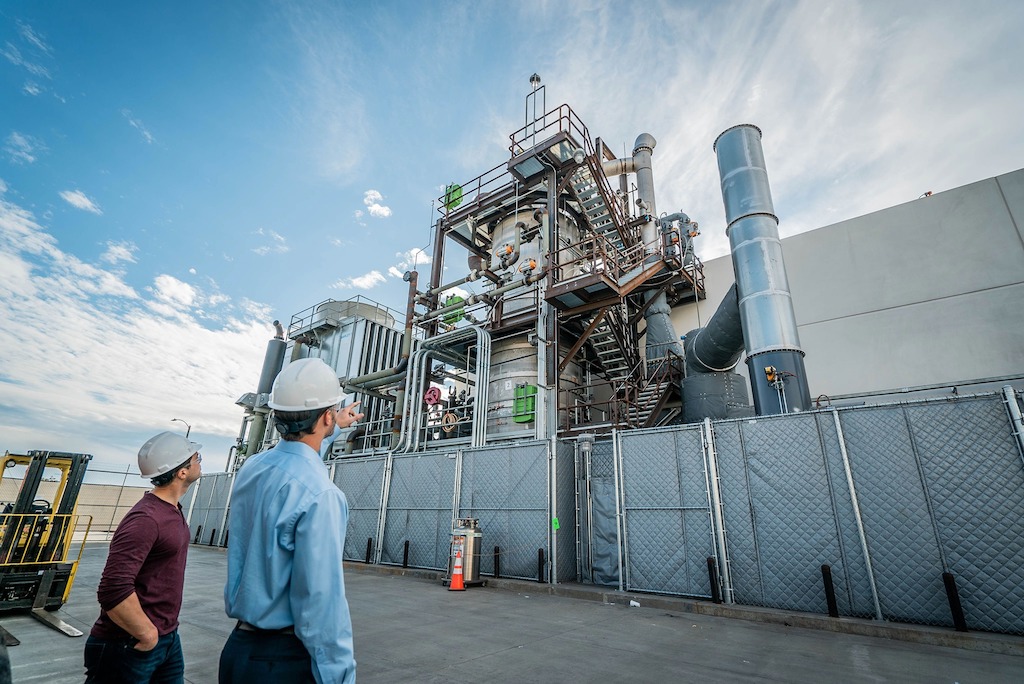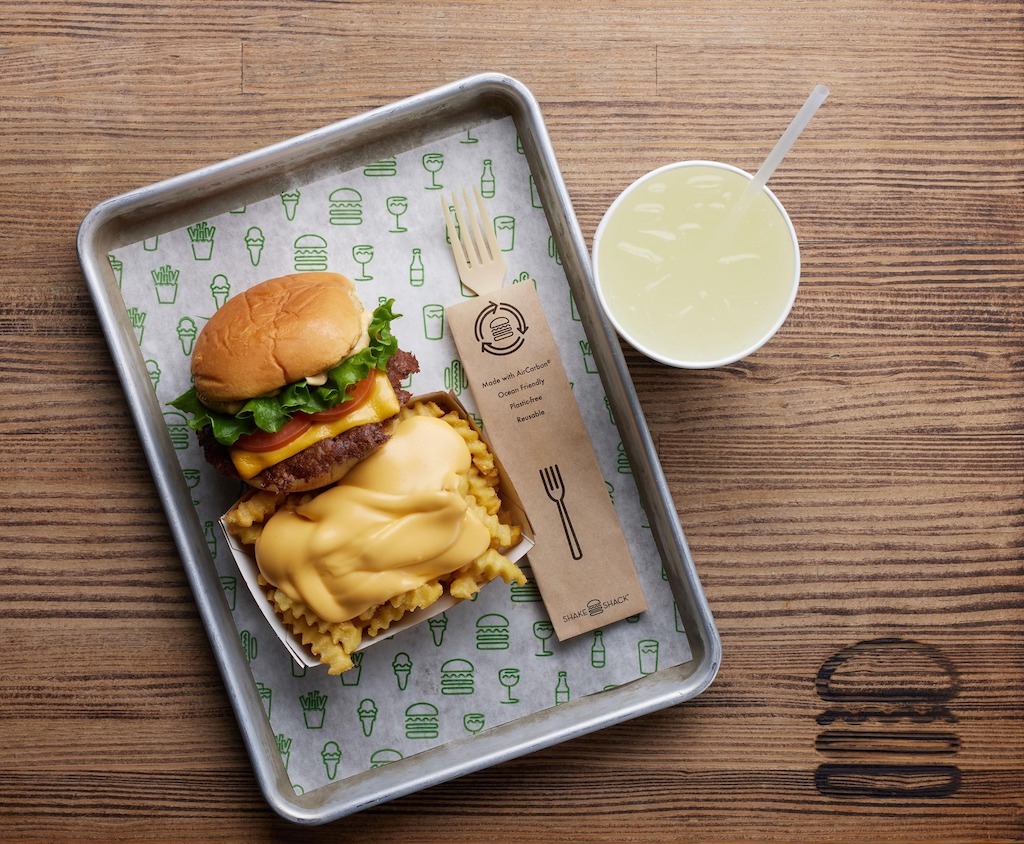AirCarbon: This Regenerative BioMaterial Replaces Plastic & Captures More Emissions Than It Takes To Make It
4 Mins Read
When Newlight Technologies was first set up, they didn’t know that this biomaterial could be possible. Simply put, their science didn’t exist. After a decade of research and development, the company has created AirCarbon – a certified carbon negative material that actually captures more greenhouse gas emissions than it emits into the atmosphere. This milestone, says the biotech, could be a turnkey solution in the fight against plastic pollution and climate change.
It all started in 2003 when Newlight asked the question: what if the materials we used actually helped the planet heal, instead of causing more harm? It took more than ten years of work, but the California-based biotech firm says they’ve now done it.
They call it AirCarbon. It’s a regenerative biomaterial that can replace synthetic plastics and fibres, which are conventionally made from climate-damaging fossil fuels and do not biodegrade in nature, leaving behind scenes of waste across our oceans and the environment, harming animals and the ecosystems that we all depend on.

Newlight did this by studying the natural microorganisms that inhabit our oceans that consume the carbon dissolved in saltwater to generate a meltable energy storage material inside of their cells. What they produce is PHB. Researchers then worked on replicating this process on land – and they managed to do it after combining these microorganisms with clean energy, saltwater and air, producing what the company has dubbed AirCarbon.
What’s remarkable is that this very process captures greenhouse gas emissions that would have otherwise been released. This science has won Newlight accolades from some of the world’s leading organisations, including the World Economic Forum, who described the company as a “technology pioneer” and an award from the U.S. Environmental Protection Agency (EPA).
While it all sounds too good to be true, Newlight has verified that its regenerative material is indeed carbon negative, working with the U.K. independent organisation Carbon Trust, who have carried out assessments for the intergovernmental bodies like the UNEP government and businesses like Danone, Bentley and even the meatless alternative brand Quorn, to analyse the cradle-to-gate carbon footprint of AirCarbon.
What Carbon Trust found in their life cycle assessment was that for every one kilogram of AirCarbon produced in Newlight’s production process using methane seeping from abandoned coal mines, 88 kilograms of carbon dioxide equivalent was being sequestered.

“By consuming greenhouse gas as a resource, and doing it with renewable power, we found that AirCarbon has a net carbon-negative cradle-to-gate carbon footprint,” said Hugh Jones, managing director of business services at the Carbon Trust.
Mark Herrema, CEO of Newlight, believes that getting the certification is important because shoppers can then make informed spending decisions that factor in the real sustainability of a product.
“This gives consumers the information they need to decide what kind of impact they want to make,” said Herrema.
So how exactly does Newlight plan to revolutionise industries with AirCarbon? First up, the biotech is applying its technology to target one of the most wasteful sectors today – disposables.
Newlight has created a number of sustainable foodware like cutlery and drinking straws for foodservice businesses, and their solution ticks the boxes in terms of performance, functionality and, of course, sustainability – it’s not just carbon negative, but home compostable, ocean and soil-degradable too. Right now, it’s being tested by the infamous burger chain Shake Shack across its U.S. locations.

And as the demand for single-use plastics continues to grow due to hygiene-related concerns in the wake of the coronavirus pandemic – not to mention the world’s continued addiction to convenience – AirCarbon could be that very solution to meet global needs in a climate-friendly way.
Armed with its recent US$45 million Series F round completed in October last year, Herrema says his company is racing to scale up in the wake of the “inflection point” that the world is now facing as a consequence of our continued destruction of nature.
Working with lead investor Valedor Partners, a private equity firm based in Houston, Newlight is now building a brand new commercial-scale production facility in its home in California, dubbed Eagle 3.
“With the installation of Eagle 3, we are eager to grow our production capacity throughout the U.S.,” commented Herrema, adding that it’ll position the firm to deliver its solution rapidly, cheaply and sustainably.
All images courtesy of Newlight Technologies.




